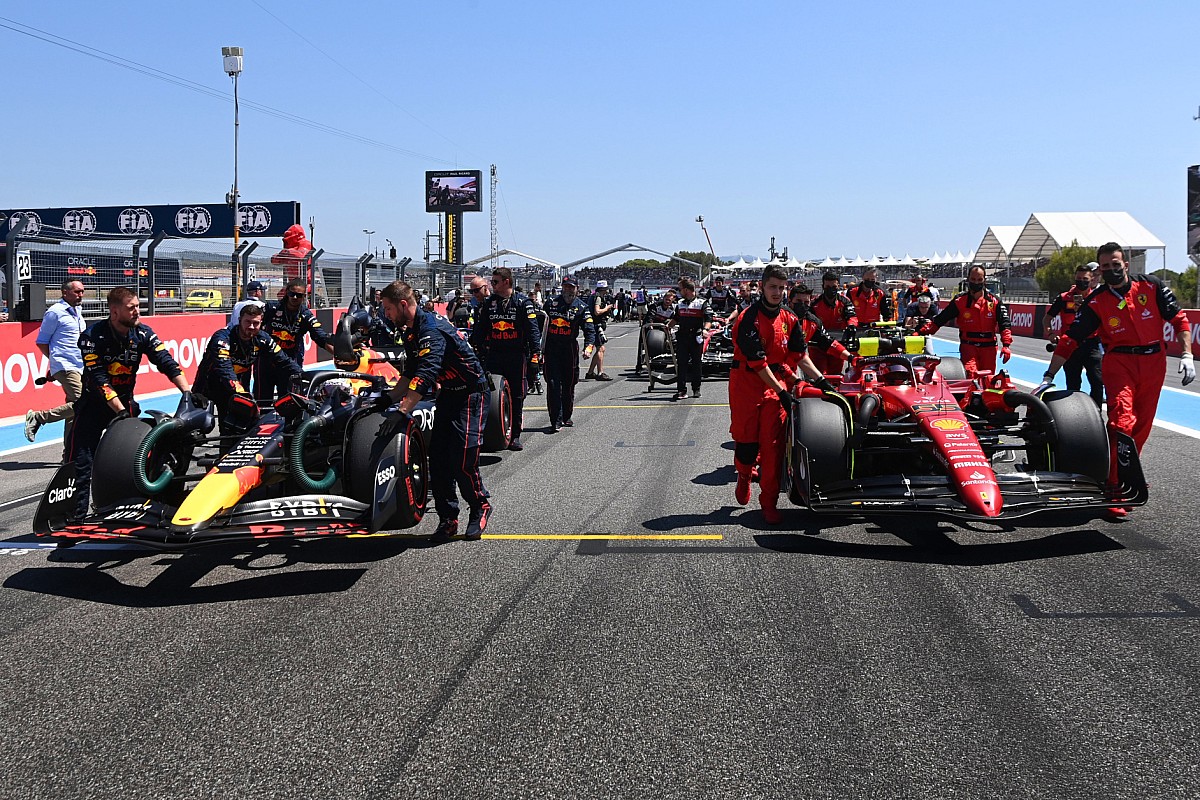
Motor racing’s governing body came under fire at Monza after it took almost four hours after qualifying for the final grid to be sorted in the wake of a host of penalties being handed out.
Fans were upset that they did not know what was going on, while some teams themselves were unsure about how things would finally shake out, as there was no formal regulation that explained in detail the process by which penalties were implemented.
AlphaTauri’s Pierre Gasly took to Twitter to ask if anyone knew where he would be starting: “Can someone tell me in which position I will start tomorrow’s race?” he asked during the wait for the grid.
Ferrari team principal Mattia Binotto was one of several key F1 figures who later said the situation needed addressing.
“The reason why it took so long [to publish the grid] is that there are certainly different interpretations and the regulation is not clear enough," said Binotto.
"That's something we need to address certainly for the future – I think not only how we decide the grid position based on the penalties, I think the amount of penalties we got as well is too many.”
In the wake of the events at Monza, the FIA has now made changes to the F1 regulations to explain explicitly the process that will be undertaken to sort out the penalties.
Following a meeting of the World Motor Sport Council in London on Wednesday, the revised rules have already been put in to the 2022 sporting regulations.
While this will not speed up the process that the FIA undertakes to first publish a provisional grid, which can still take several hours on Saturday night as post-session scrutineering checks still need to take place, the clearer rules will at least allow teams and fans to work out the grid themselves in a straightforward manner.

What the new rules look like
The revised regulations, which are detailed in the grid element of F1's Sporting regulations for both sprint weekends and normal events, outlines how the penalties are handed out.
This explains in detail the new process that was introduced a few years ago that locks in drivers to grid drops, rather than continually shuffling drivers forward as happened in the past.
Here is what the new rules say in Article 42.2 about how the grid penalties are dealt with:
a) Classified drivers who have received 15 or less cumulative grid penalties will be allocated a temporary grid position equal to their Qualifying Classification plus the sum of their grid penalties. If two or more drivers share a temporary grid position, their relative order will be determined in accordance with their Qualifying Classification, with the slowest driver keeping their allocated temporary grid position, and the other drivers getting temporary grid positions immediately ahead of them.
b) Following the allocation of temporary grid positions to penalised drivers in accordance with (a), unpenalised classified drivers will be allocated any unoccupied grid position, in the sequence of their Qualifying Classification.
c) Following the allocation of grid positions to unpenalised classified drivers, penalised drivers with a temporary grid position, as defined in (a), will be moved up to fill any unoccupied grid position.
d) Classified drivers who have accrued more than 15 cumulative grid position penalties, or who have been penalised to start at the back of the grid, will start behind any other classified driver. Their relative position will be determined in accordance with their Qualifying Classification.
e) Unclassified drivers who have been permitted to participate by the Stewards will be allocated grid positions behind all the classified drivers. Their relative positions will be determined in accordance with Article 39.3 (b).







